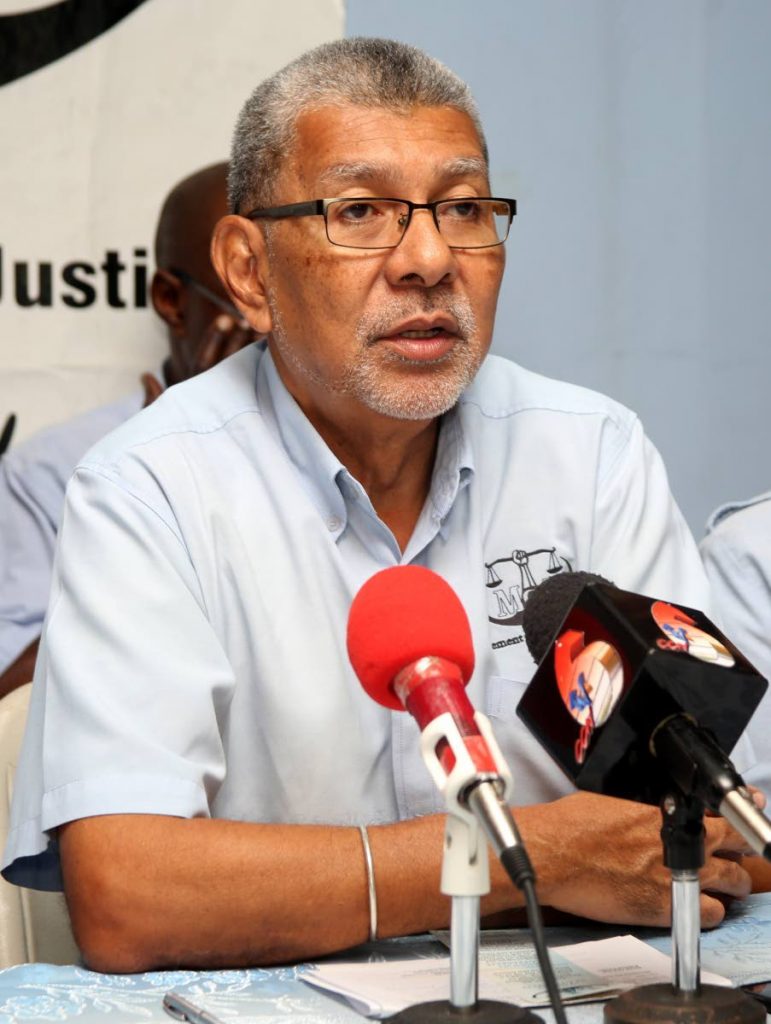US role in Venezuela crisis

DAVID ABDULAH, political leader of the Movement for Social Justice, looks at the crisis in Venezuela in a two-part article focusing on immigration, deportation, the danger of false narratives and proposals for the way forward.
Part II
(continued from yesterday)
A PERSON who applies for asylum or refugee status is not automatically granted such status. It is up to the country to decide.
The MSJ recognises and respects the 1951 United Nations Convention Relating to the Status of Refugees, which says: “A refugee is a person who, owing to a well-founded fear of being persecuted for reasons of race, religion, nationality, membership of a particular social group or political opinion, is outside the country of his nationality and is unable or, owing to such fear, is unwilling to avail himself of the protection of that country; or who, not having a nationality and being outside the country of his former habitual residence as a result of such events, is unable or, owing to such fear, is unwilling to return to it.”
Do the majority of Venezuelans in TT fit this international definition?
We think not – the vast majority are migrant workers. Did any of the 82 who were deported fit this description? If not, then why is it being argued that they were deported contrary to the UN convention?
Note: a person who fills out an application form seeking refugee or asylum status which is not before the Ministry of National Security does not gain immunity.
If that was the case then every non-national who has overstayed their time could fill out a form and this country would be obligated to grant them refugee status. We must also be aware that everyone granted refugee status under the UN convention has the same rights and privileges as a national.
We need to understand the wider geopolitical context. The US has in the past and continues to pursue policies of regime change, the undermining and destabilisation of governments that it deems opposed to its “national-security interests.” Anybody who doubts that is a dreamer.
The US is quite prepared to encourage and/or use force to remove governments that were/are democratically elected. They did it in Chile in the 1970s with the violent, repressive coup d’etat by Gen Pinochet against the democratically elected president Salvador Allende; and very recently Rex Tillerson, then Trump’s secretary of state, openly stated that a “Chile-type solution” may be best for Venezuela.
The US State Department publicly recognised the coup makers against the democratically elected president Chavez in April 2002 as the legitimate government of Venezuela, until the people took to the streets and the coup collapsed.
The US will also support very undemocratic regimes when it suits them. So we ought not to “take basket” from the US on human rights or even democracy – the US has the highest total and per capita prison population in the world and its position on migrants is one that is racist to the core.
The MSJ therefore notes with great concern the statement by Prime Minister Rowley that there are “some who are encouraging this country to be part of a military invasion of Venezuela.” We call on him to reject out of hand any and all such exhortations. We must maintain a foreign policy of non-interference in the internal affairs of another sovereign State.
The MSJ calls on the Government to develop a clear policy on migrant labour, supported by appropriate legislation to protect this vulnerable group. We call for an investigation into, and where necessary the prosecution of, anyone who may be facilitating the exploitation of migrant workers. We stand opposed to the exploitation of all migrant workers. We stand opposed to all human trafficking and the exploitation of women and men as prostitutes. We are also very concerned about the plight of ordinary Venezuelans who have been affected by their country’s economic crisis.
The MSJ calls for a high-level meeting between the Governments of TT and Venezuela to address the problems of legal and illegal immigration into TT and illegal trafficking.
We must find a solution through dialogue and mutual respect for the sovereignty of our respective countries and in the context of the long historical relationship – economically and culturally – between our countries: including the fact that there are many in TT of Venezuelan heritage; as there are Venezuelans of TT heritage; that people have families in both countries; that there has always been informal trade and the movement of people between the countries.
Furthermore, these discussions must be underpinned by the recognition of the very real economic crisis in Venezuela and its impact on its citizens and to find ways to facilitate Venezuelans coming to TT to engage in lawful trade and other economic activity, including work, that is mutually beneficial to both countries and their citizens.
David
Abdulah


Comments
"US role in Venezuela crisis"